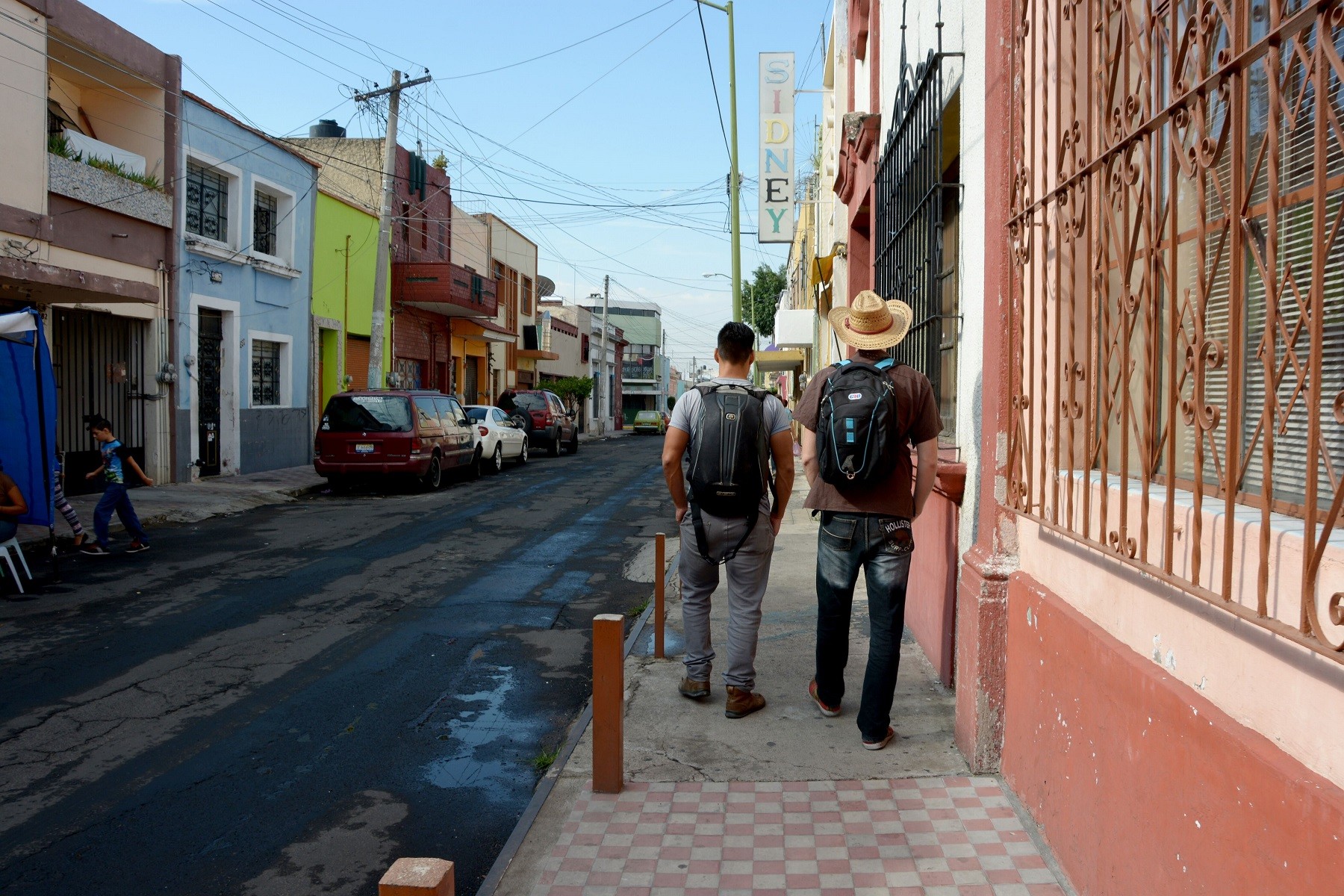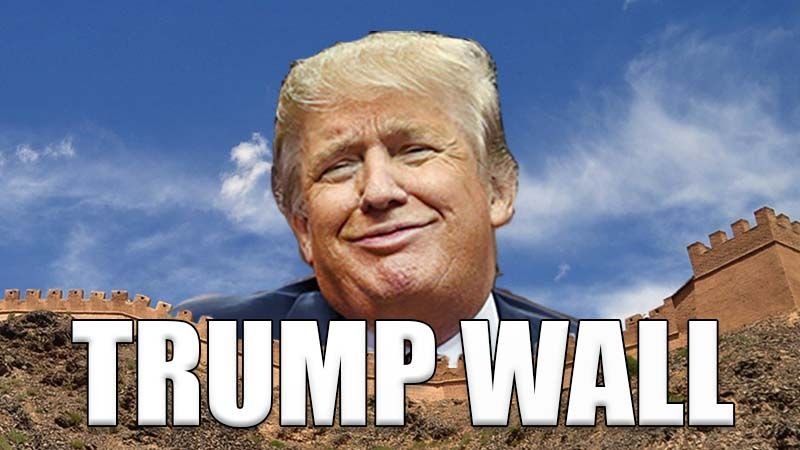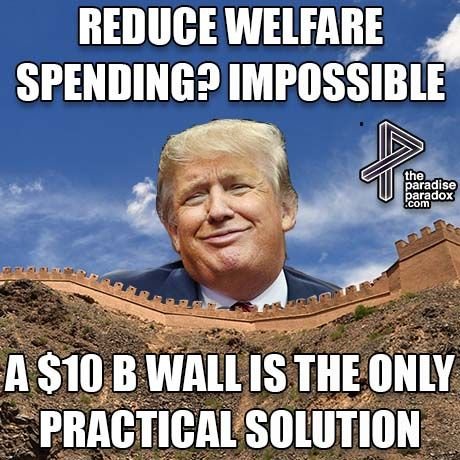There are problems with Bitcoin scalability and governance – can Dash provide solutions? Read more →



There are problems with Bitcoin scalability and governance – can Dash provide solutions? Read more →

Maybe there are still some arguments about Trump’s border wall which I haven’t heard yet… But the ones that I have heard are rather pathetic. The wall conversation seems to go like this:
We need a wall to keep people out to stop them taking welfare.
Really? Do naturalised citizens actually take more welfare than natural born citizens on average? Do you have any statistics to back it up?
Hm I uh… I do have some statistics about how immigrants are more likely to vote Democrat.
Alright, that’s something – not exactly what I was looking for though. You don’t have statistics about why they vote Democrat. You know, even if people come to work in your country, they don’t need to have citizenship, voting rights or welfare. People can get residency or working visas.
Ohhh yeah… I’m sure all the socialist politicians will maintain that rule even if it costs them votes.
Okay… but if you’re going to play that card, there’s nothing you can do politically to solve this problem. A wall certainly won’t help. The socialist politicians will just fix things so people can walk right over.
Alright alright, we can go around like this forever. If we didn’t have welfare, we wouldn’t need a wall. But we have, so we do.
So building a wall that costs billions of dollars is a perfectly reasonable, rational and possible thing to expect, but attempting to curb welfare is impractical and impossible. I see.
Here’s an interesting article which talks about why such a wall would be pretty useless: 8 things you need to know about Trump’s wall

In the evolution of money, first comes barter, then goods like silver, gold and conch shells, then comes fiat currency, then cryptocurrency such as Bitcoin. What comes next? At each step of the way, people trade something which represents an idea – the idea of labour, or the idea of value provided. What if we could trade ideas themselves?
To download the audio, right click and press “save as”.
Remember to subscribe on iTunes or subscribe on Pocket Casts.
If you enjoyed the episode, don’t keep it a secret! Feel free to share it on Twitter, Tumblr, Facebook, Reddit, or your office bathroom wall.
We really appreciate all of your contributions! Every cent and satoshi we receive lets us know that we’re doing something worthwhile, that you are entertained by our program, and that you’re starting to question what you know more and more. Please be generous. Donate to The Paradise Paradox. Or buy some stuff on Amazon using this link.
Many people poking around the Internet have been acutely aware that something big might happen around September 13th or September 23rd 2015, having watched Jeff Berwick’s Shemitah videos or read “The Harbinger”, or having calculated the days between financial collapses in the Wall Street “Seven Year Cycle”. Then the dates passed, and, depending where you were, it might have seemed like absolutely nothing happened. Another December 2012, another non-event, no end of the world and no financial collapse. However, when we look at the news a little more closely, we can see that something did happen, and the events may have put the world economy onto the edge of a precipice.
Sharemarket corrections occurred in the USA, the UK, Australia, and China, among others. Australia’s stockmarket has been plummeting down since April, and on September 29 the ASX 200 took a 3% hit, sending its price down below 5000 for the first time since July 2013. The market recovered, but still seem reminiscent of sudden recoveries that happened right before the Global Financial Crisis really set in.
A few months ago, the Greek government instated capital controls, preventing the flow of money, restricting withdrawals to 66 euros per day. A few days ago, the Chinese government took a similar measure, restricting transactions to 50,000 yuan ($7,800) from October 1st till the end of the year, and 100,000 yuan ($15,600) for the whole of 2016. Capital controls are commonly a desperate measure, an indication that a currency is failing – that too much damage has already been done. If Greece finds itself in such a position, and China finds itself in a similar position, shall we see the same fate for the rest of the PIIGS, and the rest of the BRICS?
It’s a great show, and if you’ve been smart, hopefully you don’t have front row seats, because people in the first three rows will get wet. Could we be heading for the next global financial crisis? We explore this economic rollercoaster on the next episode of … The Paradise Paradox!
[Edit: Kurt said in this episode that it’s not possible to buy physical silver in Russia, but it turns out that is inaccurate. Many Russian banks will sell silver certificates, or allocated holdings, but at certain branches you can also buy physical silver, and there are coin shops and online outlets as well.]
The Harbinger: The Ancient Mystery that Holds the Secret of America’s Future
Currency Wars: The Making of the Next Global Crisis
The Synchronicity Key: The Hidden Intelligence Guiding the Universe and You
Jeff Berwick – Shemitah Exposed
Jeff Berwick – Shemitah Exposed II
Corruption Perception Index on Wikipedia
Indonesia bans foreign currencies
China Imposes Capital Controls, Selling Billions of Dollars
Bartering Platform Offers Way To Sidestep Capital Controls in Greece
Why Did The Aus Sharemarket Lose So Much Money on Vice
Meet the Venezuelan Rebel with the Unofficial Exchange Rate
Dolar Today – Venezuelan exchange rates
Cover image used and modified under Creative Commons.
To download the audio, right click and press “Save as”.
A lot of people assume that without a minimum wage law, businesses will give their employees pennies, because they’re looking to increase their profits. I’m going to present a case using a slightly different scenario, involving a character we all know and love: pizza. This is Pizzanomics.
Are there price controls on pizza in your town? A maximum pizza price mandate? No? The last time you bought a pizza, did it cost one million dollars? Two million, three million? Even if you didn’t pay a million, you must have seen an ad for a pizzeria charging that much – right? The business owner has a profit motive. Why doesn’t he charge a cool milly for a pizza?
Instead of paying a milly, you probably paid a price that was more or less consistent with the quality and convenience of the pizza. You probably paid a little more if you got it after 10pm, and you probably paid a little more if it was a gourmet pizza.
Let’s say you find a pizza place, and it’s the only one open. They have a pizza for $30 delivered. If you really want a pizza, maybe you buy it. What if the price is $50? You know an Indian place where you can get two curries and coconut rice delivered for $25, so you call them up instead. Maybe the price of the pizza is so high that everyone ordering in decides they will opt for Indian or Thai instead. In the coming weeks or months, will the pizzeria change their prices? What will happen to them if they don’t change their prices?
The next weekend it’s 2 a.m. and you’re feeling in the mood for a pineapple eggplant supreme. You call up the pizzeria and they say their price is still $50. Then you check your mail and realise there is a place that will deliver a supreme for $20. Assuming the quality of the pizza is similar, how do you think the first pizzeria will react when they find out their prices are being undercut? Maybe they will match the price if you mention it. Maybe they will beat it. Maybe they will bring their advertised price down to $25, considering they still have an established name. One thing they will most likely not do, is keep their prices the same and refuse to negotiate.
Why is this important? Are there price controls on labour where you live? A mandatory minimum wage statute, or a union agreement which is backed up by the force of law? The last time you started a job, or in your current employment, did you or do you get paid minimum wage? Most likely you get paid more than minimum wage. Only 2.5% of workers in the USA earn the minimum wage or less. Why do businesses pay more, even though they’re not forced to? The same reason a pizzeria won’t charge a million dollars for a pizza.
Instead of being paid a dollar a day, or being paid the minimum wage, you’re probably paid something that’s consistent with your skill level and convenience of your job. If you do something that requires little training, you probably get paid minimum wage. If you have more experience at it, you probably get paid more than minimum wage. If you do something that requires a lot of training or many years of practice, or if you do shift work, if your work is dangerous or you work away from home, you probably get paid significantly more.
There are less people who are willing to work a dangerous job, willing to do shift work, less people who have certain specialised skills. The decreased supply means the price must increase to match it. All of the employers are competing for the labour, just as the pizzeria is competing for your custom.
And that is Pizzanomics.
To download the audio, right click and press “save as”.
Remember to subscribe on iTunes or subscribe on Pocket Casts.
If you enjoyed the episode, don’t keep it a secret! Feel free to share it on Twitter, Tumblr, Facebook, Reddit, or your office bathroom wall.
We really appreciate all of your contributions! Every cent and satoshi we receive lets us know that we’re doing something worthwhile, that you are entertained by our program, and that you’re starting to question what you know more and more. Please be generous. Donate to The Paradise Paradox. Or buy some stuff on Amazon using this link.
There’s a lot of talk floating around about September, with the Hebrew calendar culminating in the Shemitah, astrology leading us to believe that the divine masculine and feminine are moving in harmony, asteroids crashing into the earth, the Pope addressing the US congress, the Freemasons’ “Year of the Light”, the Federal Reserve expounding their interest rate policy going forward, and CERN powering up the Large Hadron Collider to full-bore.
Are all these potentially influential events just a coincidence? With so much going on in this world every month, maybe we should hesitate to draw any conclusions. Of course, where one human sees a coincidence, another sees a synchronicity – and that’s where we start going down the rabbit hole. Don’t fall too deep as we move into another earth-shattering episode of … The Paradise Paradox!
Penetration – the Question of Extraterrestrial and Human Telepathy
Jeff Berwick – Shemitah Exposed
To The Moon! – The Paradise Paradox
NWO world currency announcement
Israeli Rabbi Says Messiah Coming
Rosh Hashanah and the creation of Adam and Eve Sep 15
Anno Lucis Year of Light – beginning – Sep 14
US Resolution – Palestine will be a state Sep 15
136 nations recognise Palestine
Yom Kippur (Day of atonement) starts the evening of Sep 21
International Day of Peace Sep 21
70th Jubilee Year to start on Sep 23
Day of Arafat (Pilgrimmage to Mecca) begins Sep 22
Islamic Feast of Sacrifice Sept 23-26
Prophetic Time Cycle from Israel Recapture june 7 1967 to September 23, 2015
Mayan Time Cycle in years to days from Sept 11 – Sept 23 (5126 days)
Pope Francis Apostolic tour – addresses US congress (first time ever) Sep 24
Russian media talking about “the 2030 Agenda“ Aka “Agenda 21 on steroids”

Audio for “The War on Drugs is a War on People”. The other day I criticised someone for repeating some hearsay from the media, for furthering the agenda of perpetuating the War on Drugs. She asked me why she shouldn’t want to perpetuate the War on Drugs, especially when it is an awful drug like ice – that is, methamphetamine.… Read more →
Millions of people all over the world have their retirement funds in 401K plans, superannuation or the local equivalent. When they retire, will the withdrawal of funds from the stockmarket cause a recession? What are some assets that might keep you safe or prosperous during this time? We ask these questions in this exciting chapter of The Paradise Paradox.
Disclaimer: Given that we are not financial advisors and we have no knowledge of your personal financial position, nothing in this episode should be construed as financial advice. Always consider your personal finances before making an investment decision.
To download the audio, right click and press “save as”.
Remember to subscribe on iTunes or subscribe on Pocket Casts.
Please donate to show your support. BitCoin address: 182CzJUbz8xb1JZjuVm2S4YUBfd3xk2XfM
Or donate your Altcoins using Shapeshift:
In this episode we introduce the podcast and talk about a range of topics such as ancient Egypt, channeling aliens from Andromeda, the US people’s perceptions of Mexico, the world economy, and propaganda.
To download the podcast, right click and press “Save as”.
Please donate to show your support. BitCoin address: 182CzJUbz8xb1JZjuVm2S4YUBfd3xk2XfM
Or donate your Altcoins using Shapeshift: